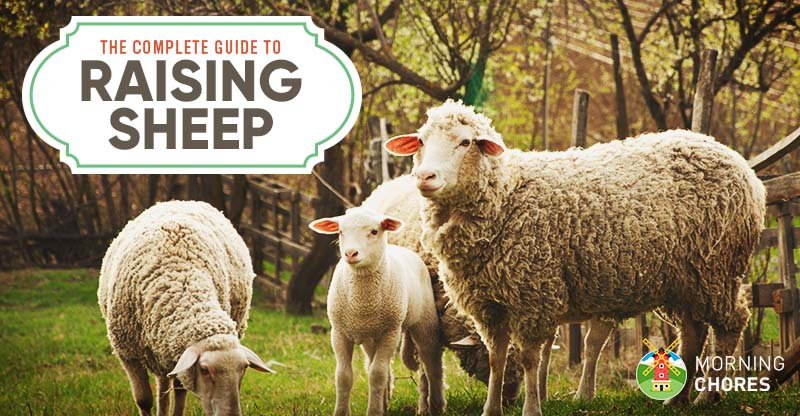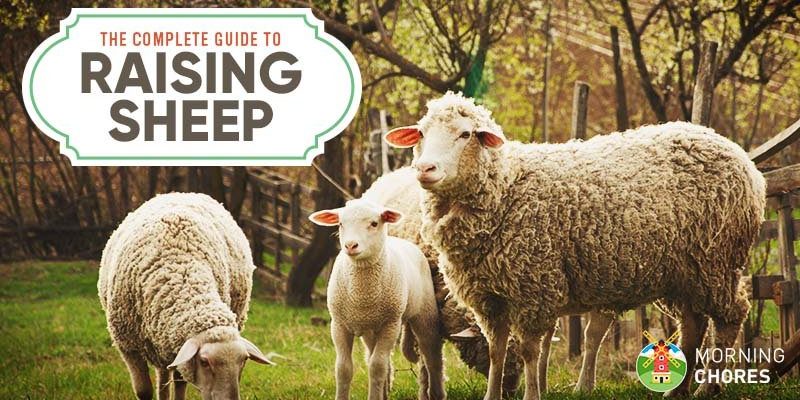
Raising sheep is a bit like parenting, really. You need to nurture them, understand their needs, and provide a safe environment for them to thrive. There’s a learning curve, but with patience and commitment, you’ll find it’s not that complicated. Whether you want sheep for wool, meat, or simply as adorable pets, knowing how to care for them is crucial. Let’s dig into the basics, shall we?
Choosing the Right Breed of Sheep
When starting your sheep-raising journey, the first step is selecting the right breed. There are many types of sheep, each with unique characteristics. Some are better for wool production, while others are raised primarily for their meat. Here are a few popular choices:
- Dorset: Known for their meat quality and ability to breed year-round.
- Suffolk: A great breed for beginners because they are hardy and produce excellent lambs.
- Merino: Famous for their fine wool, ideal for those interested in wool production.
Consider what you want your sheep for. If wool is your goal, the Merino is a fantastic choice. If you want to raise healthy lambs for meat, look into the Dorset or Suffolk. Choosing the right breed is crucial because it affects your farm’s overall success and your experience.
Feeding Your Sheep
Here’s the thing: sheep have specific dietary needs, and providing the right nutrition is essential for their health. They mainly eat grass, hay, and grains, but it doesn’t stop there. A balanced diet includes:
- Grass or pasture: Fresh grass is key, especially in spring and summer.
- Hay: This is a great supplement when fresh grass isn’t available.
- Grains: You can feed them grains like oats or corn for added energy.
Additionally, minerals are crucial. Sheep need access to salt licks or mineral blocks to ensure they get enough nutrients. You might be wondering how much to feed them. Typically, an adult sheep will eat about 2–4% of its body weight in dry matter daily.
Keeping an eye on their body condition is important, too. You want to ensure they’re not too thin or too overweight. This can help prevent health issues that could arise from poor nutrition.
Creating a Safe Living Environment
An ideal home for your sheep is one that’s clean, spacious, and secure. Think of it as setting up a cozy apartment for your fluffy friends. Here’s what you need to consider:
- Fencing: Strong, sturdy fencing is a must to keep your sheep safe from predators. Sheep are curious and will often try to explore beyond their boundaries.
- Shelter: Your sheep need protection from harsh weather. A simple barn or shed with adequate ventilation works well. Just ensure it’s dry and clean.
- Space: Sheep are social animals, so they thrive in groups. Ideally, keep at least two sheep together to avoid loneliness.
You might need to rotate grazing areas to keep the grass healthy and prevent overgrazing. Providing enough space will also help reduce stress and keep your sheep happy.
Health Care and Regular Check-ups
Just like any other pet or farm animal, sheep need regular health care. This involves routines that’ll keep them in tip-top shape. Here are the essential points:
- Vaccinations: Consult with a veterinarian to determine what’s necessary. Regular vaccinations help prevent diseases.
- Hoof care: Keep their hooves trimmed to prevent foot rot and other issues.
- Worming: Regular deworming ensures they stay free from parasites.
It’s a good idea to familiarize yourself with basic signs of illness. If your sheep seem lethargic or stop eating, that’s a red flag. Early action can make a world of difference in their recovery.
Understanding Sheep Behavior
To truly care for your sheep, you need to understand how they think. Sheep are social animals that benefit from companionship and structure. Here are a few key points about their behavior:
- Social Creatures: They thrive in flocks. If you have one, consider getting more!
- Instincts: Sheep are prey animals, so they might be skittish. Calm handling helps build trust.
- Curiosity: Sheep are naturally curious, which can lead to trouble. Be vigilant about their environment.
Learning to interpret their behaviors can help you build a strong bond with your flock. Understanding their body language will make your experience much more enjoyable.
Shearing and Wool Care
If you’ve chosen a wool-producing breed, you’ll need to learn about shearing. This can sound daunting, but it’s actually quite straightforward! Here’s how to go about it:
- Timing: Shear your sheep once a year, preferably in spring before it gets too hot.
- Tools: Invest in good shears or hire a professional if you’re unsure.
- Technique: Learn the proper technique to ensure the sheep is comfortable. Always prioritize their wellbeing.
After shearing, store the wool properly if you plan to sell it. Clean, dry wool fetches a better price. Plus, shearing helps keep your sheep cool during the hot months.
Enjoying Your Sheep
Lastly, don’t forget to enjoy the experience! Raising sheep can be a fulfilling hobby that brings not just work but joy and companionship. Spend time with your sheep, watch their behaviors, and make them part of your daily routine.
You might find that feeding them becomes a little ritual, or maybe you enjoy brushing their wool while chatting with them. Sheep can be delightful friends as you nurture and care for them.
In conclusion, raising sheep is not just about work; it’s about building relationships with these lovely creatures. With proper care and understanding, you’ll enjoy every moment spent with your flock. So grab your gear, prepare your pasture, and get ready for an adventure in sheep farming!

